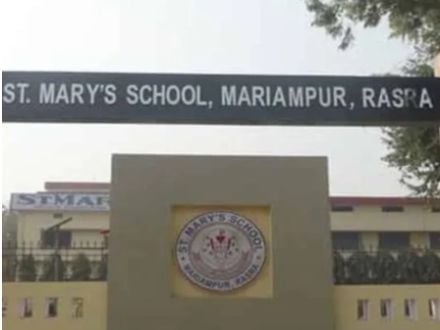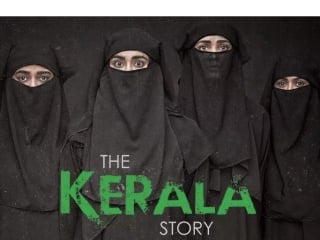Ashwin Krushnapaksha 13, Kaliyug Varsha 5115
Great hope is being pinned on a recently launched crash course in electoral politics for the Christian, particularly the Catholic, population in India to prepare them for the general elections scheduled for early 2014.
The object is to counter and, if possible, defeat right wing Hindu nationalist groups who are making a determined bid to wrest political power in New Delhi in the general elections. The Church leadership and laity are being told how they can synergize their voting strength in select constituencies in collaboration with other groups in so as not to divide what is said to be the “secular vote”.
This, it is presumed, will help defeat the political parties with a history of antagonism towards religious minorities.
This political exercise has been undertaken by a small group in the Archdiocese of Delhi working with representatives of Protestant churches and Muslim religious leaders, apart from a handful of civil society activists.
But members of the core lay team spearheading this campaign in applied democracy have their work cut out. They face problems ranging from rank incredulity on the one hand to the passive disinterest of people who feel they are too few to make any impact. The upshot is that many feel they will not be missed if they don’t vote. This feeling of resignation could have far reaching consequences.
The Christian community in India is so small as to seem irrelevant. At 25 million people, it accounts for only 2.3 per cent of the national population, or one fifth of India’s largest and politically powerful Muslim minority community. While there might be more Christians than Sikhs, the Sikh community is concentrated in Punjab from where they control the state legislature and government, and can have their voice heard decisively in the country’s parliament.
In contrast, the states where Christians are a substantial proportion of the population – Meghalaya, Mizoram, Nagaland, Goa and Kerala — are themselves politically miniscule, with a total of less than 30 seats in the 543-member Lok Sabha. Uttar Pradesh alone, for example, has 80 seats.
Historically, the Christian community, with some individuals as exceptions, has been considered close to the Indian National Congress. It was loyal to Mahatma Gandhi and to Jawaharlal Nehru, the first prime minister of the country. And over the decades it has to an extent remained loyal to Indira Gandhi and her Nehru-Gandhi clan, which controls the ruling Congress Party, though no one of the clan holds any ministerial position at present.
The opposition parties, especially the Hindu nationalist Bharatiya Janata Party, have jeered at Congress Party president Sonia Gandhi for her Italian Catholic origins, but the Christian community itself has derived no advantage from this connection.
There have been no Christian chief ministers of any major state in the past, other than of the tiny three in the north east, and Goa and Kerala on the west coast. In other areas, disempowerment of Tribal Christians continues to be a sad fact of life, and Dalit Christians in particular feel betrayed by the Congress-ruled federal government.
There is a deep seated feeling that development funds for religious minorities have been sluiced to the Muslim community, deemed to be a “vote bank” of Congress and Samajwadi political parties, at the cost of the silent Christians. This by itself failed to arouse the community for years.
The turning point, one feels, was the anti-Christian violence in Kandhamal in Orissa state in 2007 and 2008. The sheer magnitude of the violence shocked the community and its religious and secular leadership out of their torpor.
There had been more than 20,000 “communal” riots, or religion-based acts of mass violence, since 1947, but the victims in almost all of them were Muslims. The Sikh community was the victim of mass violence in 1984 following the assassination of prime minister Indira Gandhi by her Sikh bodyguards.
Though there had been thousands of sporadic and isolated acts of violence against pastors, priests and nuns, there had been just one case of mass violence, and that in Tamil Nadu. Kandhamal suddenly made the Christian community aware of its vulnerability.
The lack of an adequate and comforting response from civil society and political parties also made it clear to the Christians that they really had no political voice, and had to find one.
It is impossible for the Christian community to become politically viable on its own strength. But many in the community have come to realize that they can be a force-multiplier if they act in concert, and perhaps in alliance, with other like-minded groups.
The cementing factor is the common concern against the rise in religious fundamentalism triggered by the right wing Hindu nationalist Rashtriya Swayamsewak Sangh and its political wing, the Bharatiya Janata Party. It rules in Madhya Pradesh, Chhattisgarh and Punjab [in a coalition with the Akali Dal of the Sikhs].
The recent emergence of Gujarat Chief Minister Narendra Modi, widely presumed to have encouraged a veritable genocide of Muslims in 2002 in his state, as a prime ministerial candidate in 2014 has brought a rare sense of urgency.
Christian leaders realize that with Muslims and other “secular” entities, they can make a difference in perhaps as many as 140 parliament constituencies, which could be decisive when it comes to the formation of a future coalition government.
The Muslim community is known for its “strategic voting” which maximizes its presence by giving a winning edge to select candidates who have the best chance of defeating anyone seen as being communal or sectarian.
The call now is for the Christian community to adopt and join this concept of strategic voting, and help the electoral prospects of candidates – and they can be of any of the political parties – who have the best potential of defeating candidates with a known communal bias or track record of hostility towards religious minorities. It is not an easy task to educate a Christian community scattered widely across the country, split into denominations, cultural rites and scores of language and cultural groups.
The time is short, the resources very limited, and the experience extremely little for extensive political mobilization at the grassroots. But the collective adrenalin is pumping high, as early reports come in of a swing of the young and the middle class towards Narendra Modi, with his known animosity towards religious minorities.
Perhaps nothing may come out of this exercise in a worse case scenario. But the newly acquired political awareness will be useful in the future building of a community that is aware and proud of its identity and knows how to assert its rights for development and security equity under the constitution.
John Dayal is the general secretary of the All India Christian Council and a member of the Indian government’s National Integration Council.
Source: UCA News




